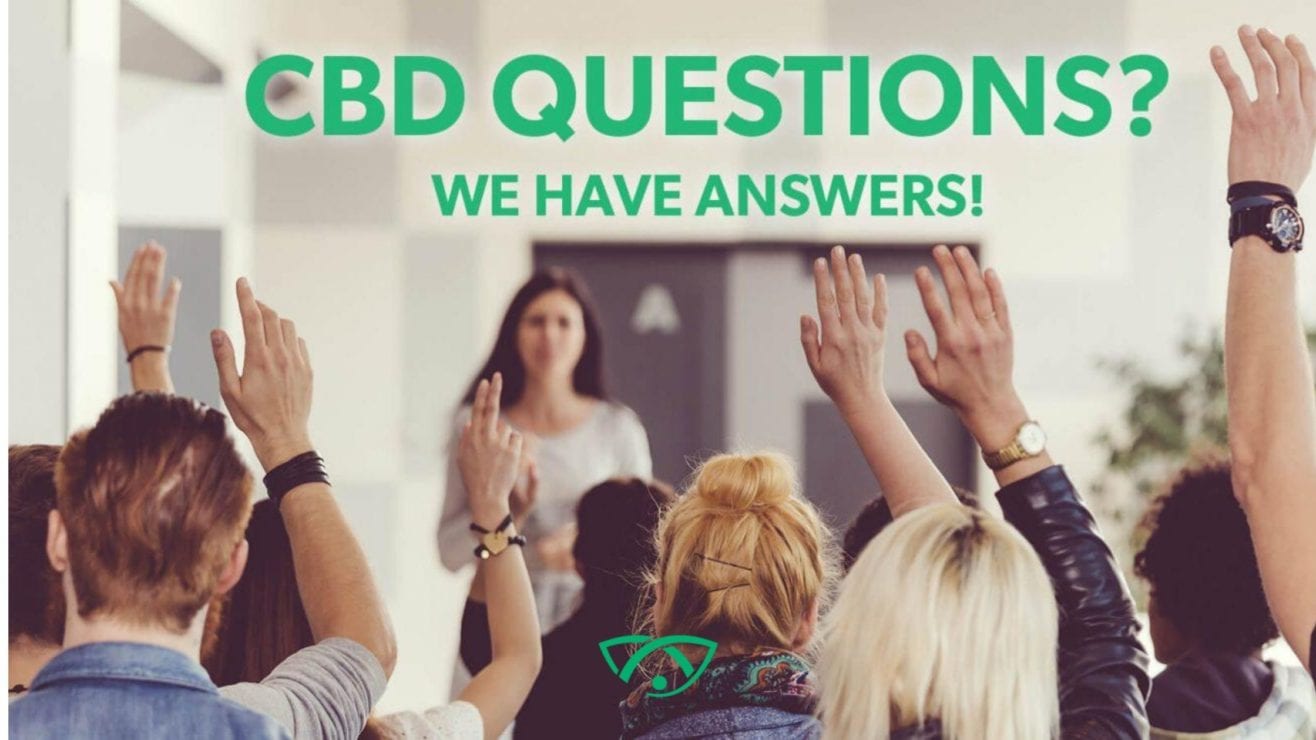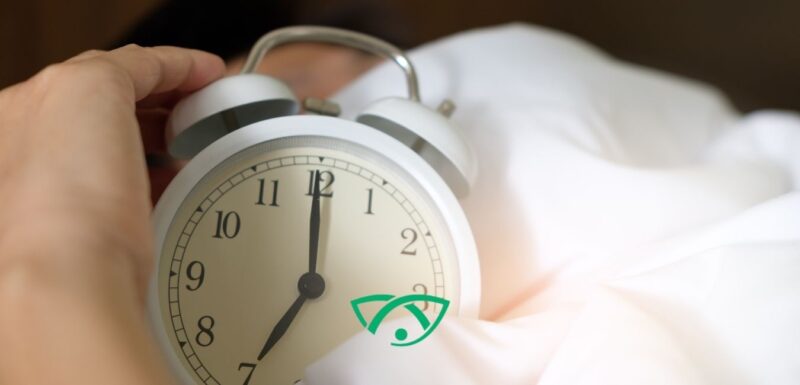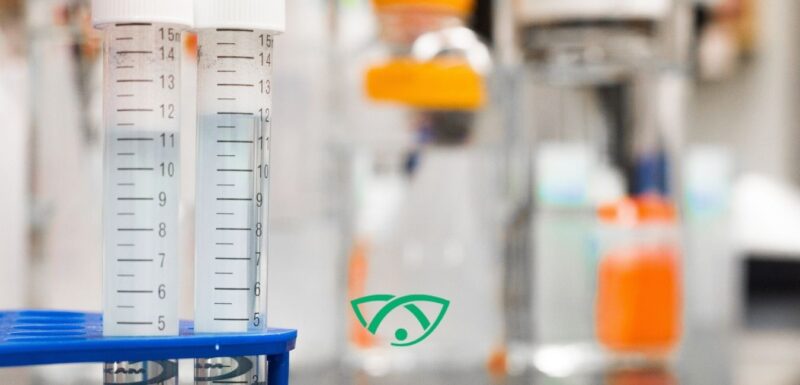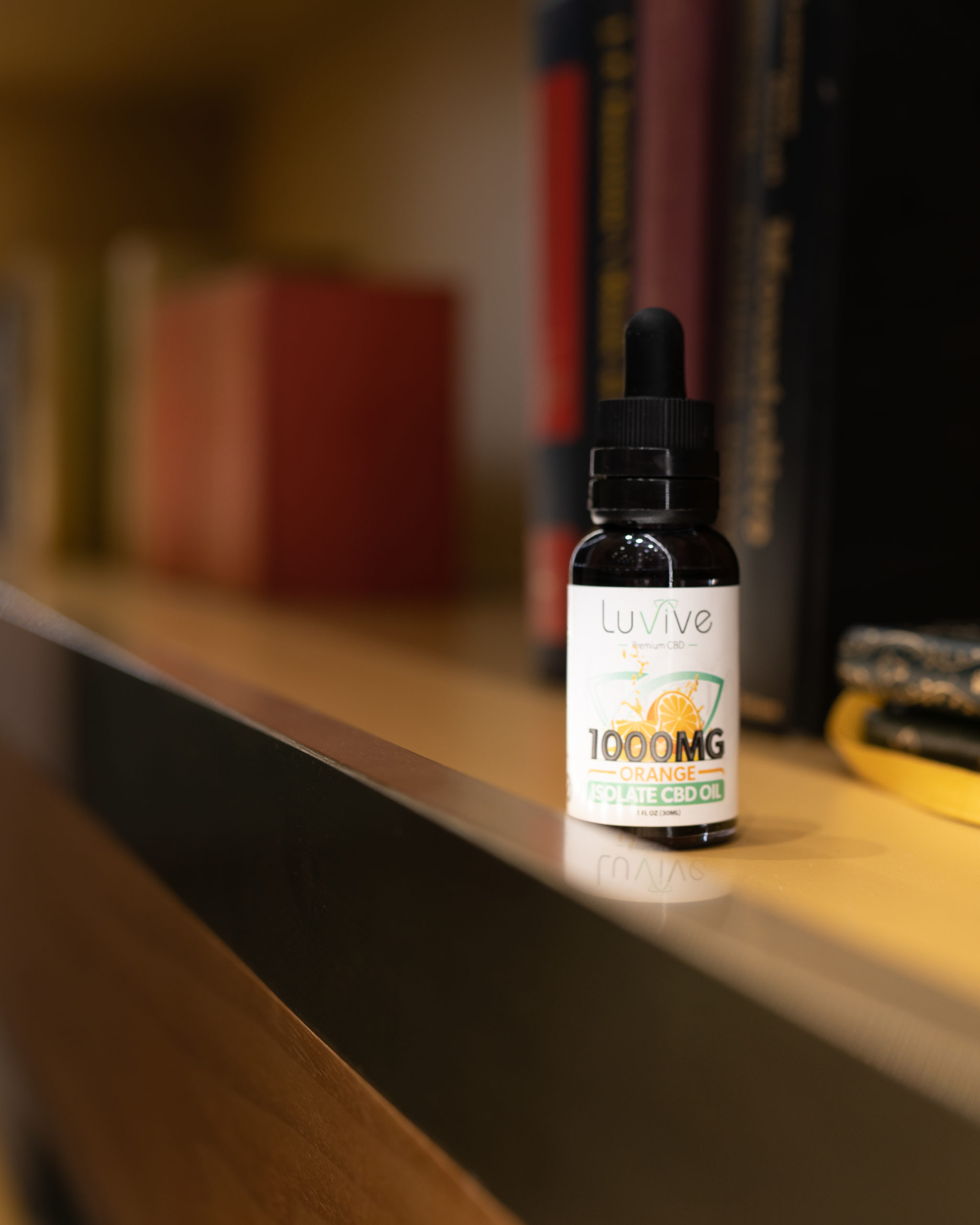In search of answers to your most common questions about CBD? Please reach out to our Luvive Customer Support Monday – Friday from 9am – 5pm PT or send us an email at service@luvivecbd.com.
What is CBD?
CBD stands for cannabidiol, a chemical compound from the cannabis plant. Unlike tetrahydro cannabidiol (THC), it is not psychoactive, meaning it will not make you sedated or altered in any way and cannot get you “high”.
What is a cannabinoid?
The word cannabinoid refers to any compound synthesized within the cannabis or hemp plant, like THC, CBD, and Cannabigerol (CBG) and there are many more cannabinoids that Scientists have discovered as well.
What’s the difference between full-spectrum, broad-spectrum, and isolate CBD?
Full-spectrum CBD oil contains the full array of compounds produced by its sourced plant: CBD, a trace amount of THC, and other cannabinoids and terpenes (compounds that produce different aromas, like citrus or pine).
Broad-spectrum CBD oil contains a wide array of the other compounds, but THC is removed completely.
CBD isolate contains only CBD with all other compounds removed.
The wide variety of compounds found in full-spectrum CBD oils make them popular among consumers wanting the full range of compounds included in the hemp plant. Broad-spectrum CBD oil or CBD isolate, however, are a good choice for those who want to avoid even trace amounts of THC.
Is CBD legal?
Hemp-derived CBD can be sold and shipped to all states except for Idaho, Iowa, and South Dakota.
Will CBD give me a “high” feeling like THC?
The short answer is no. On its own, CBD is a non-intoxicating compound. Any CBD product you purchase on Luvive Products is required to contain 0.3% THC or less per serving. The trace amount will not result in any effects of intoxication or “high”. Our isolate products have 0.0% THC. It’s also important to note that the FDA has not evaluated claims made about CBD products in the market, and these products are not intended to diagnose, treat, cure, or prevent any diseases.
What’s the difference between hemp-derived CBD and cannabis-derived CBD?
Hemp plants contain 0.3% THC or less by weight, and cannabis plants contain more than 0.3% THC by weight.
What is the difference between CBD and THC?
Unlike its cannabinoid cousin THC (tetrahydrocannabinol), CBD (cannabidiol) is non-intoxicating and won’t cause a “high” feeling. All CBD products on Luvive Products contain 0.3% or less THC by weight per serving. If you’re looking for products with 0% THC, check for products labeled “CBD isolate” or “broad spectrum.”
How is CBD extracted from the hemp plant?
There are different methods of CBD oil extraction, the two most common being superficial CO2 extraction and ethanol extraction.
CO2 extraction requires carbon dioxide to be transformed into its liquid state at temperatures below -69° and pressurized using a compressor, then passing it through the plant material. It’s followed by a lengthy purification process to remove co-extracted constituents, such as waxes and plant fats, from the extracted product.
Ethanol extraction involves running the solvent through the plant, taking the CBD from it. When the ethanol has evaporated, the CBD oil is left behind. Ethanol has been classified as “Generally Regarded as Safe” (aka GRAS) by the FDA and is already used in many common foods and medicines.
How does CBD work?
CBD affects the endocannabinoid system and interacts with a wide variety of other receptor systems in the body. This is the reason it is purported to have such a range of potential therapeutic benefits. Brain receptors are not only sensitive to neurotransmitters produced naturally in the brain, like dopamine and serotonin, but also to chemical messengers produced outside the body, such as plant cannabinoids like CBD. When these plant-derived compounds enter the body through the bloodstream, they can influence brain activity by interacting with receptors on neurons. But they don’t interact with all neurons, just the ones that have the appropriate receptors.
Is CBD natural or synthetic?
CBD is one of the many naturally occurring chemical compounds called cannabinoids found in cannabis and hemp plants.
Is CBD vegan, vegetarian, and/or gluten-free?
Yes! CBD in its pure form is a plant-derived compound free from gluten. However, it can be added to edible, drinkable, or topical products that contain gluten, dairy or other animal byproducts, so read product descriptions and labels carefully.
Will CBD cause a positive THC drug-test result?
All CBD products on LuviveProducts.com contain 0.3% or less THC. If you’re concerned about THC, look for products labeled as isolate or broad-spectrum instead of full-spectrum.
Is CBD addictive and can it affect my sobriety?
Although current studies have not shown CBD to be addictive, it’s important to note that the number of human studies conducted is extremely limited. Because of the current lack of FDA regulations that set labeling standards and serving guidelines for CBD, purchasing products from reputable sources, like Luvive Products, that provide 3rd party testing results and CBD farm/distributor Certificate of Analysis are even more important. Broad-spectrum and isolate CBD products are a good option for those who want to avoid even trace amounts of THC. Even though CBD has not been shown to be addictive, individuals can still potentially develop unhealthy relationships with the substance based on a wide array of factors. At the end of the day, weighing the potential risks and benefits of CBD is up to individual discretion. You should always consult your healthcare provider if you’re looking to use CBD for health or illness and to better understand how it may interact with other medications or other supplements you’re taking.
How do I know the right CBD serving size to use?
It depends on several factors: method of consumption (tincture, topical, edible), your individual biology, and the specific nature of your wellness needs. There is no universal serving size for CBD. Finding the “sweet spot” for your specific needs may take some trial and error. Look to the product label for direction on serving size. If the label doesn’t include directions, we suggest starting with low servings. If you’re looking for targeted relief without ingesting CBD, a topical cream, or lotion could be a good option.
Can CBD cure my _____?
CBD medical claims are currently not evaluated by the FDA. These products are not intended to diagnose, treat, cure, or prevent any disease and you should always consult with your healthcare professional before taking CBD for any medical or health needs.
What are the long-term effects of taking CBD?
At present, there haven’t been any large-scale clinical trials to inform serving size guidelines and CBD’s cumulative effects. Most existing studies on CBD are preclinical and use animal models. However, more clinical studies using human participants are now emerging. Existing studies do suggest that CBD appears to be fine for use and well-tolerated.
Are there research studies, peer-reviewed or otherwise, for CBD?
Although interest in CBD continues to grow at a rapid pace, research around this compound has been lagging to keep up with the demand. Most existing studies on CBD are preclinical and use animal models. More research is being conducted than ever before into how CBD works on its own and in relation to its other cannabinoid counterparts.
How long does it take for my body to process CBD?
It highly depends on the serving size, your body’s metabolism and the bioavailability of the CBD product you’re using. Bioavailability refers to the degree and the rate at which a product is absorbed into the bloodstream. Different methods of consumption have different levels of bioavailability. For example, when CBD is ingested orally as a gummy bear or pill, it has to go through the gastrointestinal tract, then the liver, where it’s metabolized. When taken as a tincture, CBD has a more direct route into the bloodstream, allowing it to be processed more quickly.
Do CBD topicals work? Will CBD Topicals work the same as oil or pills?
Topicals penetrate the skin to provide targeted relief, without entering the bloodstream. This is a great option for those who want to focus on CBD’s beneficial properties on specific areas of their body rather than feel the effects throughout the whole body. Topicals work best as part of a preventative wellness routine.
Can I cook with CBD?
Yes! Hemp-infused cooking oils are an easy way to introduce CBD to your culinary world. You can also add a few drops of CBD oil to your favorite oils and kinds of butter and incorporate them into your salad dressings, smoothies, dips, and baked goods. Avoid adding CBD oil to direct heat as heating it can decrease its potential benefits.
Is it legal to buy CBD online?
Yes! These products can be shipped nationwide unless a state prohibits CBD sales. Currently, products can be shipped to all U.S. states except for Idaho, Iowa, and South Dakota. The CBD industry is a quickly evolving space – check back with us frequently to learn if we’ve added your state to our shipping destinations.
Do you ship to all 50 states?
We currently ship to all U.S. states except for Idaho, Iowa, and South Dakota. (Shipment of CBD products is currently prohibited in these states).
Is your packaging discreet? I don’t want people to know I’m buying CBD online.
Yes, we recognize that your neighbors or colleagues might make comments or have opinions relating to CBD. USPS Priority Mail boxes are the only packaging that we use.
*These statements have not been evaluated by the FDA. This product is not intended to diagnose, treat, cure, or prevent any disease.
*Always seek the advice of your physician or other qualified health provider with any questions you may have regarding a medical condition or prior to using any CBD products.



